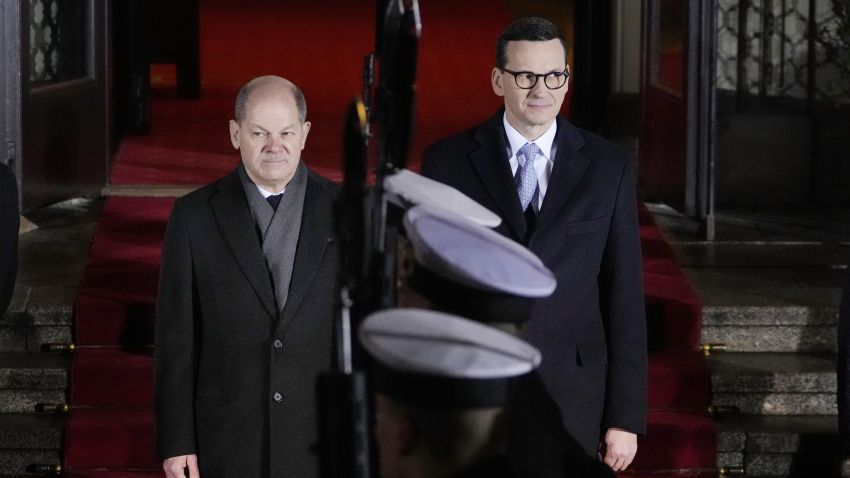In December 2021, as part of her inaugural trip as Germany’s new foreign minister, Annalena Baerbock made a final stop in Warsaw to meet her Polish counterpart, Zbigniew Rau. Before Baerbock’s visit, tensions were already high between Poland’s ruling Law and Justice Party, or PiS, and Germany’s newly formed government, due to criticisms of Warsaw’s controversial judicial reforms in the policy agreement that ushered in the Ampelkoalition, or “traffic light coalition,” in Berlin.
“The language used in the new coalition agreement and the statements of German politicians are unambiguous to me: The new German government looks at Poland as a German protectorate,” Polish Vice-Justice Minister Sebastian Kaleta had declared prior to Baerbock’s visit. Polish officials began to vocalize their demands for World War II-era reparations and the termination of the Nord Stream 2 natural gas pipeline between Germany and Russia.
Upon her arrival in Poland, Baerbock sought to smooth those tensions. Her diplomatic détente included the laying of a wreath at the Tomb of the Unknown Soldier, referring to the German-Polish relationship as “invaluable” and expressing Berlin’s solidarity with Warsaw in the face of a then-ongoing campaign by Belarus to weaponize asylum-seekers and refugees along its border with Poland. During her joint press conference with Rau, Baerbock prudently addressed their differences over things such as rule of law issues in Poland, saying that “what marks strong friendships [is] facing uncomfortable questions.”

